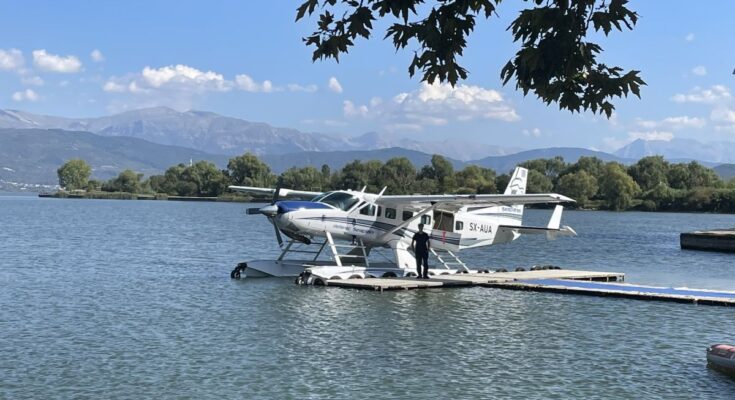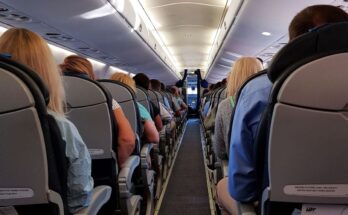
Aircraft of Hellenic Seaplanes in Amphilochia. Photo source: Hellenic Seaplanes
Port authorities of the Greek islands of Santorini and Milos have denied approval for seaplane operations, citing safety concerns – a decision that excludes two of Greece’s most visited islands from Hellenic Seaplanes’ new national network expected to launch this summer.
The company, which aims to revolutionize regional travel by combining air and sea routes, confirmed it is proceeding with its summer 2025 rollout, despite the setback.
In a recent announcement, Hellenic Seaplanes said local port authority objections to water runway use have effectively barred the two Cycladic islands from its operational map. The company referred to the decision as a “missed opportunity”, noting that both Santorini and Milos are high-demand tourism destinations with the infrastructure and traffic to support multimodal transport.
Hellenic Seaplanes has already completed the first phase of its operational plan, activating its booking platform and preparing flight connections aimed at improving access to remote destinations. The network will operate from key hubs in Athens, Skyros, and Ioannina, linking islands and coastal cities including Patmos, Tinos, Chios, Paxos, Corfu, Volos, Amphilochia, and others.

Aircraft of Hellenic Seaplanes in Ioannina. Photo source: Hellenic Seaplanes
Utilizing certified water landing sites, existing water aerodromes, and conventional airports, the company’s fleet of amphibious aircraft promises safe, flexible, and year-round transportation options.
Despite this progress, the absence of Santorini and Milos highlights the regulatory hurdles facing innovative transport initiatives in Greece. “In major port cities like Vancouver, Copenhagen, Sydney, and Miami, seaplanes operate daily within busy harbors,” the company noted. “Yet in Greece, a country that relies heavily on maritime tourism, these aircraft face roadblocks driven more by administrative hesitation than real safety risks.”
To address concerns, Hellenic Seaplanes has offered to conduct fully funded demonstration flights to familiarize local authorities with seaplane operations and safety procedures.

Photo source: Hellenic Seaplanes
“Seaplanes are more than just a mode of transport—they represent a revival of Greece’s aviation heritage and a catalyst for connectivity, innovation, and sustainable development,” said Hellenic Seaplanes CEO Nicolas Charalambous.
“Seaplanes will generate jobs, boost local economies, and attract investment. But for this national network to thrive, we need tangible support from the state – both in infrastructure and a more efficient licensing process. Greece has all the natural advantages. What we need now is action.”
Follow GTP Headlines on Google News to keep up to date with all the latest on tourism and travel in Greece.
Source link



